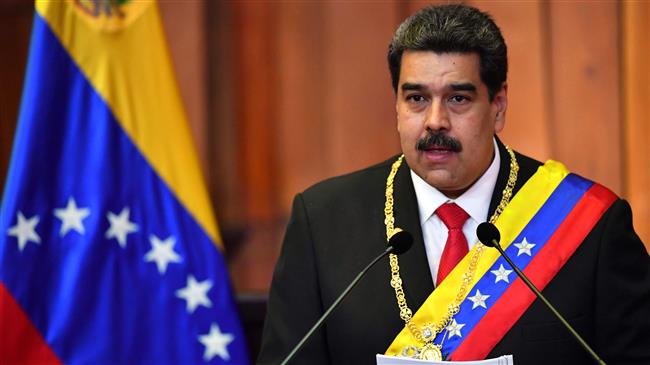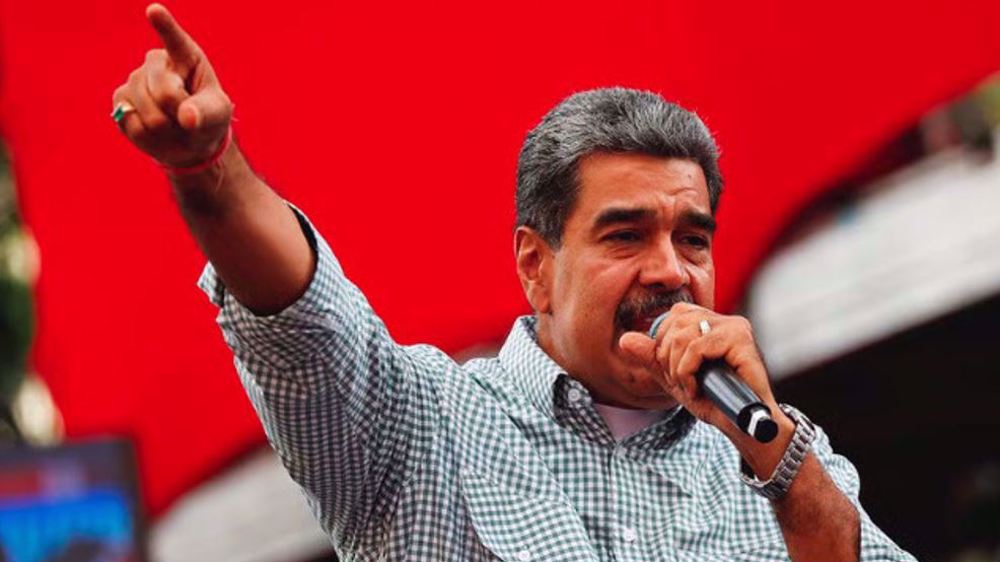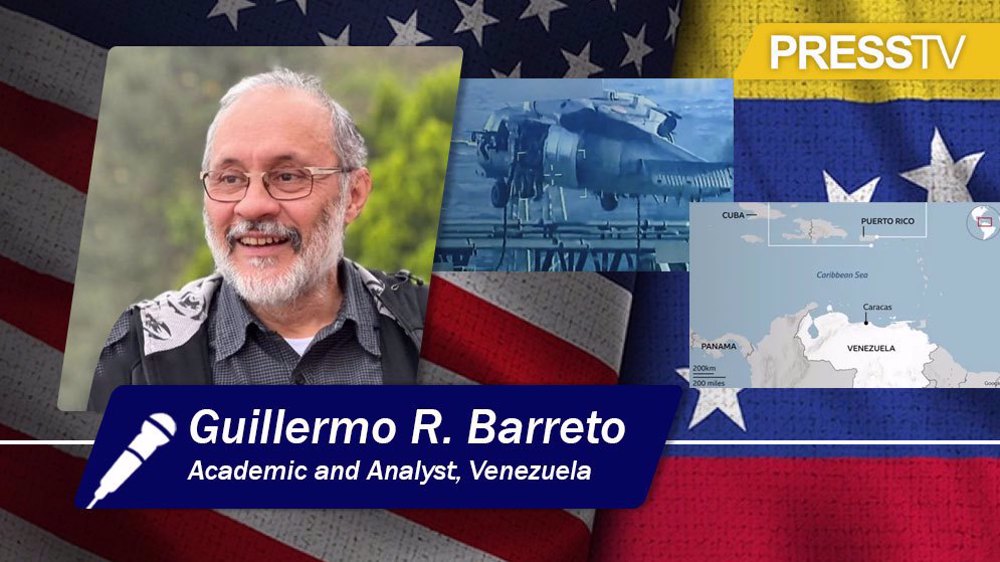Nicolas Maduro sworn in for 2nd term as Venezuelan president amid intl. criticism
Venezuelan President Nicolas Maduro has been sworn in for a second term in office amid regional and international criticism that his presidency is “illegitimate” due to last year’s disputed vote, which faced irregularities claims as well as an opposition boycott.
The socialist leader, who first came to power as president in 2013, said on Thursday that his second six-year term was a “step of peace for our country,” accusing the United States and several Latin American states of waging a “world war” against his nation.
Thousands of his supporters convened for the ceremony in the capital Caracas, as Nicaraguan President Daniel Ortega, President of Bolivia Evo Morales and Cuba’s President Miguel Diaz-Canel also attended the heavily-guarded ceremony.
This comes as thousands of security forces, in full gear, were stationed in Caracas and other major cities, as opposition groups had called for pot-banging and the sounding of horns in protest during the ceremony.

The re-inauguration took place at the country's Supreme Court of Justice instead of its opposition-run Congress, which has been controversially stripped of its powers since the president’s ruling Socialist Party lost control of it in 2016.
Venezuela’s Congress has already denounced Maduro’s presidency as illegitimate, calling on the country’s pro-Maduro military to support efforts to “restore democracy” in the South American country.
Maduro was re-elected in May after an early election called by the ruling Constituent Assembly, which faced claims of vote-rigging as well as an opposition boycott.
Several of Venezuela’s Latin American neighbors as well as the European Union joined voices with Maduro’s opponents at the time and said they would not recognize the results of the election.
Last week, foreign ministers from a bloc of 14 Latin American countries -- the so-called Lima Group -- announced after a meeting in the Peruvian capital Lima that their governments would not recognize Maduro as president if he attempted to remain in office, calling on the 56-year-old leader to hand over power to the National Assembly.
Earlier this week, Christian Zerpa, the Supreme Court judge and a long-time government loyalist, fled to the US in a declared protest at the president’s second term, arguing that the election “was not free and fair.” He also described Maduro as an incompetent leader who led the once-wealthy country to ruins.
Relations between Caracas and Washington have been tense since the late socialist president Hugo Chavez came to power in 1999. Chavez’ successor, Maduro, says the US has imposed a full-scale economic war on the country to topple its government.
A high inflation rate and a shortage of basic commodities such as foodstuff and medicine have reportedly forced an estimated 2.3 million Venezuelans to leave the country since 2015.
The Maduro government blames the economic crisis on the opposition and the US sanctions. The opposition says Maduro’s mismanagement is to blame.
Back in August, Maduro survived an assassination attempt during a military parade in Caracas. He was unharmed while seven Venezuelan soldiers sustained injuries in the incident. Maduro has accused the US and Colombia of being responsible for the attack.
VIDEO | Iraqi govt. rejects any kind of normalization with Israeli regime
VIDEO | Venezuela's medicine prices soar to unaffordable level amid US blockades
Somalia officially demands Israel reverse recognition of Somaliland
Hezbollah condemns deadly terror attack on worshippers in Syria’s Homs
VIDEO | US military build-up in Caribbean
Iran parliament probes missing $6.7bn in oil export revenues: MP
Saudi-backed coalition vows to counter UAE allies in Yemen
VIDEO | Heavy rains, flash floods leave Southern California homes caked in mud












 This makes it easy to access the Press TV website
This makes it easy to access the Press TV website